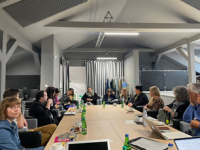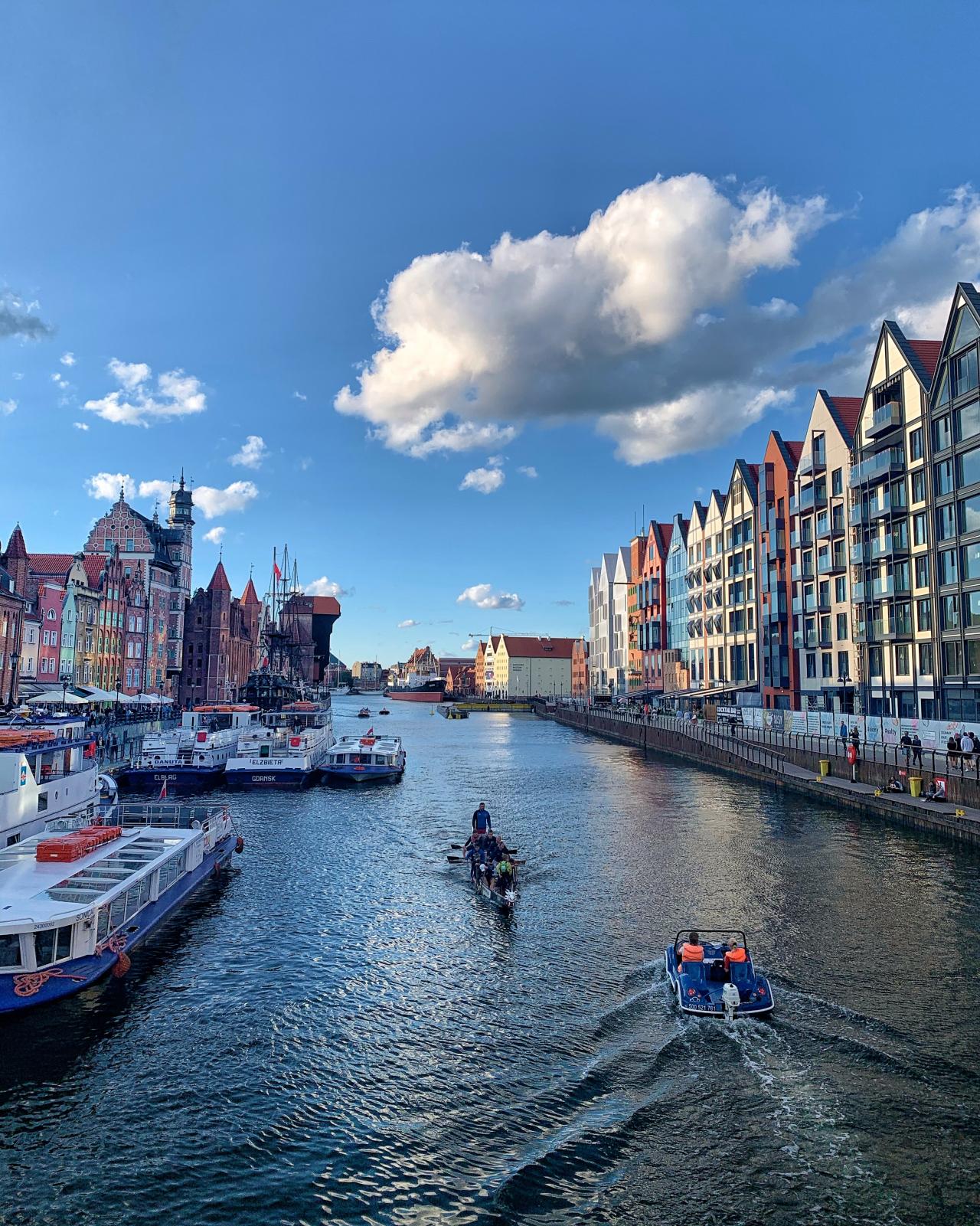
The 2nd Transnational Meeting took place in Gdańsk with a mixed-mode: some sessions were carried out “in presence”, with the participation of representatives of Budapest, Cluj-Napoca, and Turin, and others online.
More than 20 people participated in the face-to-face activities, and as many people followed the online meetings. It was an opportunity to implement the relationship between partners and to further explore the host city and its projects.
The meeting started in the City Hall, then moved to the Gdański Archipelag Kultury (GAK) where most of the activities took place. After a brief round of greetings among the partners, the first day of the Transnational Meeting kicked off with a workshop to deepen the interdepartmental cooperation on the commons. The rest of the morning was dedicated to the pacts of collaboration, investigating the tools used by the city of Turin. In particular, the role of Turin’s Tavolo Tecnico and other partner experiences was investigated. The talk by Tiziana Eliantonio focused on the steps necessary to sign a pact of collaboration, following the Regulation on Co-Management of Urban Commons, and presented some of the pact ongoing in Turin.
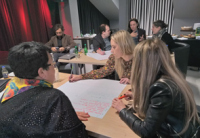
In the second part of the day, the group visited the Neighborhood House and the Ubocze 24, a public complex of 160 apartments built in 2009, having major social problems. The idea for this place is to develop social housing to give greater space to inhabitants in their self-organization and to introduce social diversity. After the visit, the discussion continued by presenting Gdańsk’s context, focusing on two topics: Co-governance and Neighbourhood Houses.
Gdańsk’s team shared the social development challenges of the city, such as attracting new inhabitants, improving the level of involvement and responsibility for common goods, and enhancing cultural heritage and identity. That brought them to the 2030 Plus Development Strategy, a medium-term vision aimed at supporting the development of local communities to empower local identity, diffuse new skills, support informal groups, enhance citizens' participation in decision-making processes and improve the resources within local communities. To reach that transformation, a change in governance culture is needed: the team presented some steps to reform the administrative structure of the city, in order to make it more innovative and strategic through integrated cross-sectorial approaches (both horizontally and vertically). Neighborly Houses represent the physical (and mental) space in which the collaboration of civil society can be fostered.
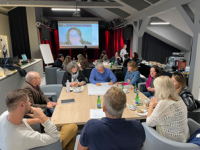
The Gdansk model of Neighborly Houses was initiated in 2008, then developed and implemented by the citizens, local NGOs, and Municipality of Gdansk. In 2009 in the city there were five Neighborhood Houses, today there are twenty-four houses. After this presentation the afternoon session continued with a workshop aimed at mapping the co-governance mechanisms existing in all partner cities, followed by a conclusive moment of reflection and discussion together.
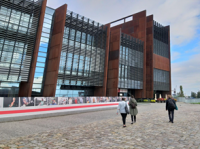
The Transnational Meeting’s second day started with a visit to the European Solidarity Centre, an internationally known museum and education centre for civic and democratic engagement, with embedded co-governance elements.
The morning session began with a reflection among the partners on the challenges of Gdansk. The Gdańsk Municipality identified a variety of goals within CO4CITIES. On one hand, there is an overall ambition to rethink regulations to allow the co-design, co-governance and co-management of public assets and social services. The Collaboration Pacts of Turin serve as an inspiration and an objective towards which Gdańsk can aspire. On the other hand, the Gdańsk Municipality has envisioned two pilot projects, the Ubocze 24 and a Social Cohesion Hub, that allow the testing of some concepts and legal visions, as well as the exploration of the limits of current regulations and partnership arrangements. The meeting then continued with a workshop concerning the ULG formation, the Transferability Study, the Investment Plan and the topic of communication, where an exchange was held between the cities. After lunch in the afternoon the meeting concluded with an optional visit to the Museum of Amber.
